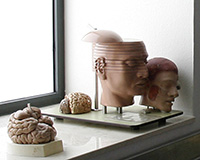Uses of medical images and metaphors experienced a notable increase throughout Spanish society during the sixteenth and seventeenth century. The theatre is emblematic of these uses. It is not difficult to find plays that draw directly on published medical manuals: Agustín de Rojas’ Loa sobre la dentadura y sus remedies (1604) for example, draws directly on Martínez de Castrillo’s Coloqvio breve y copedioso sobre la materia de la dentadura (1557). In more general terms, physicians, surgeons, apothecaries, and unofficial medical practitioners regularly appear on stage during the seventeenth century, providing historians with a fascinating view of the social currency of medical images during a time when drama was almost a national obsession. Among historians of early modern Spanish science, there is a long tradition of using literary texts as source material. However, we are not interested in early modern drama as a source of information about medicine per se. Instead, we will examine the representation of medicine and medical practitioners in the dramatic works of early modern Spain for two reasons. First, we hope to suggest the ways in which these plays represent a wide variety of medical practitioners and dramatise the contact between academic and popular medical practices. To do so, we will examine the characterisation of a number of medical practitioners –including physicians, barber-surgeons, vendors of simples, and charismatic healers– as well as the diseases they treated. Second, we will look at some of the ways in which even the most conventional representations of physicians –as ignorant misanthropes– underscore the intense public interest in the medical practices and theories of the seventeenth century. Both of these objectives are designed to address one of the thorniest problems facing the history of Spanish medicine: bridging the gap between the elite world of academic medicine and its popular reception. While studies of medical investigation and advances during the period have tended to characterise Spain as uninterested in medicine, greater and greater numbers of people were paying –in times of economic crisis– to see plays about medicine. In other words, the interest in medicine on the behalf of Spanish playgoers can only be described as lively and vigorous. Spanish drama, in short, indicates an unabated social concern for medicine and, in particular, an interest in the interaction and competition among academic and extra-academic medical systems. The comedias and entremeses of the seventeenth century regularly represent the transmission or dissemination of medical knowledge from one group to another. Frequently, this is done in the context of a satire of physicians, but it would be a mistake to understand the satire of medical practitioners as a wholesale rejection of medical practice; instead, plays constitute another coherent, critical voice that participates in a broad discourse about healing alternatives in early modern Spain.
López Terrada, María Luz
Ministry for Science and Innovation












